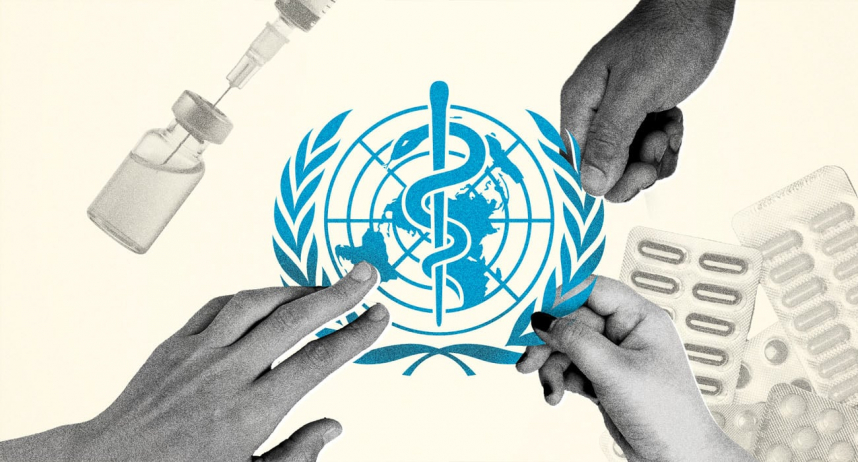
In the run-up to COP28, the World Health Organization (WHO) together with the global health community, is raising its voice to ensure that the impact of climate change on health takes center stage in the negotiations. It is imperative to broaden the focus to human health in global discussions, leaving no room for excuses, and compelling negotiators to recognize that they bear the responsibility for the well-being of our most invaluable asset: the health of populations worldwide.
"Prioritizing health is not just a choice; it is the foundation of resilient societies,” said Dr Tedros Adhanom Ghebreyesus, WHO Director-General. “Leaders must deliver in Dubai, providing the strong health outcomes their peoples expect and their economies urgently need. We must change the conversation and demonstrate the massive benefits of bolder climate action on our health and well-being.”
The extreme weather events around the world in recent months offer a terrifying glimpse of what lies ahead in a rapidly heating world. The IPCC report says about 3.5 billion people – nearly half of humanity – live in areas highly vulnerable to climate change. Heat-related deaths among those aged over 65 years have risen by 70% worldwide in two decades, according to WHO’s figures. Only a dramatic and dedicated effort to limit warming to 1.5 °C will prevent a future much worse than what we see now.
Increasingly frequent and severe extreme weather events, such as droughts, floods, and heatwaves, will also strain healthcare infrastructure. Last year's floods in Pakistan displaced 8 million people and affected 33 million overall. Forecasts from the World Bank indicate that without bold and immediate action, climate change could displace approximately 216 million people by 2050.
As the climate crisis jeopardizes lives and livelihoods, global food systems struggle to sustain a growing population, and compromised water sources compound the challenges. In parallel, climate change is catalyzing a surge in infectious diseases like dengue and cholera, endangering millions. Now is the time for decisive and collaborative action to mitigate the health impacts of the climate crisis and build a sustainable future for all.
As climate change poses an unprecedented challenge to health systems worldwide, it is also imperative that we strengthen our systems to be resilient, low-carbon, and sustainable. Failure to act swiftly will render health systems worldwide vulnerable to the overwhelming impacts of climate change.
Climate change is not a distant threat; it is a present danger affecting our health on multiple fronts. The health community asserts that climate change is already affecting our health, contributing to the spread of infectious diseases and vector-borne illnesses. There is an urgent need for negotiators to comprehend that climate change is a direct threat to global health that can no longer be ignored or downplayed.
Adapting our health systems means upgrading key interventions such as vector control, epidemiological surveillance, and access to safe water and sanitation. Additionally, the training of health staff is crucial, and support is needed to align health systems with the guidance included in the WHO’s operational framework for building climate-resilient and low-carbon health systems.
To reduce the negative impact on health, the health community stresses the importance of reducing and stopping emissions. According to WHO, 7 million premature deaths annually are attributed to air pollution. Urgent mitigation measures, including transitioning to clean energy sources, are necessary to protect human health and create sustainable outcomes.
The health community recognizes the role health systems play in contributing to emissions, and advocates for greening the health sector. This involves decarbonizing health systems, digitalizing medicine, and implementing sustainable practices in hospitals and healthcare facilities to significantly reduce the 5% global emissions attributed to the health sector.
Over 1 billion people worldwide are served by health-care facilities with unreliable electricity or no electricity at all. For low-income countries lacking access to electricity, the health community calls for an acceleration of access to clean energy. WHO is working with partners to accelerate the electrification of healthcare facilities through renewable energies to harmonize medical supplies and lead a transformative change towards cleaner energy sources, better services, and reduced reliance on diesel and gas.